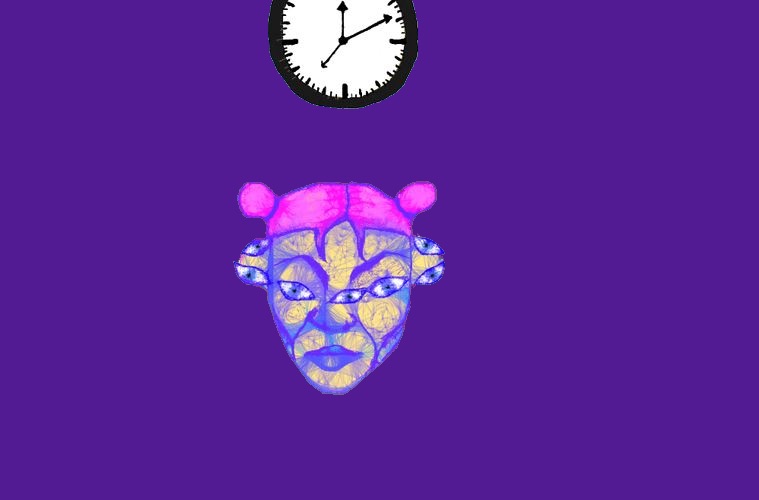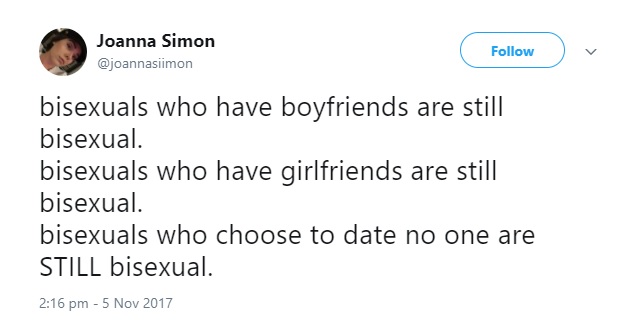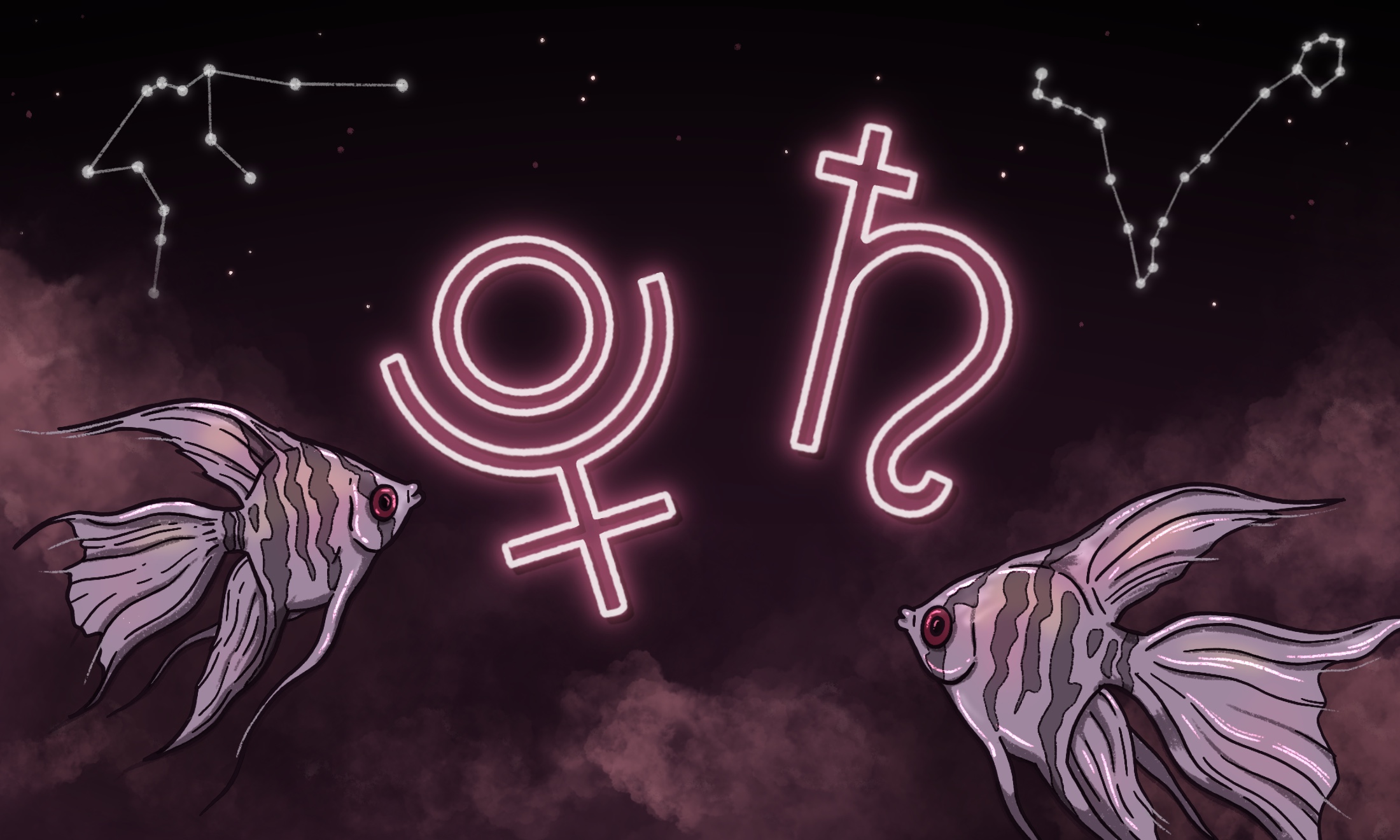
#SELFCARESUNDAYS: Bisexuality, gender and blackness – six things to know when navigating a world that tries to erase you
Victoria P-A
19 Nov 2017
1.You will be too much for some people — that’s okay (they’re basic anyway)
Don’t force people to accept you as black and/or queer, especially those who are not part of your community. Some people cannot handle anything that is not stale, male, and pale. It’s okay, you are still worthy of love, you are still amazing. Having a complex identity often means that we are complex characters with layers to our personalities and varied life experiences — but some people’s lives are straightforward.
The oppression that we face builds character, and that can be overbearing or difficult to understand for the basic Becky. Their inability to understand you is more a reflection on them than it will ever be of your right to live your life as unapologetically black and queer. Preserve your softness and your vulnerability. Put your mental health first: it’s easier said than done, but accepting the fact that you will be misunderstood means that you are less likely to burn out from trying to make people understand your very existence.

Biphobia is a real thing and there’s a lot of info out there for people who still can’t wrap their head around bisexuality. Don’t try to be everyone’s teacher, most aren’t worth the fight. Maybe one day you’ll identify as gay, but that’s your journey — and you should take all the time you need to feel comfortable in your identity.
“Bisexuality can be hard for some to grasp as it is not fixed to one gender”
Maybe you don’t have a gendered preference but don’t want to put a label on it. That’s okay too: this article is also for you. Words will always be too limiting, and the world is far too accustomed to categories. Bisexuality can be hard for some to grasp as it is not fixed to one gender and therefore rejects categorisation and in turn frustrates and confuses people. Bisexuality is yours to claim if you feel that it represents for the most part what you feel sexually.
3. Remember, there are others like you. It seems black people aren’t allowed to have anything.
As with our rightful culture, land, and success — black people can’t have anything. We aren’t given the space to discuss how biphobia is experienced as a black person. Particularly as black women, it seems we are denied the right to define ourselves as bisexual as we are just simply ‘’asking for too much’’. Black women have always been expected to appreciate anything that we’re given, and whenever we ask for more we automatically are labelled as entitled and fussy. The biphobia we experience is gendered and racialised and so the rhetoric on greed that we are often subject to is stronger and harsher on us as black women.
“Billie Holiday, Grace Jones and June Millicent Jordan have shown that we are valid, and that bisexuality is absolutely for us”
When we are black women dating other women, we can feel forced to accept the term ‘’lesbian’’ and while that works for some, remember that your current relationship doesn’t define your sexuality in total, bisexuality does not make you an “incomplete” queer. The world needs to allow black women to date other women and non-binary people without feeling forced to reject bisexuality.
As black women we are told that we are not allowed to be complex or ambiguous. We are pushed into stereotypes and are not given any nuisance to our individuality or personal experiences. Therefore, it can feel as though the bisexual community is not for us, but black bisexual women throughout history such as Billie Holiday, Grace Jones and June Millicent Jordan have shown that we are valid, and that bisexuality is absolutely for us! So let’s remember that when feelings of self-doubt and shame cloud our judgement of ourselves.
Defining ourselves as a queer black woman, it’s only normal that we can at times feel like we are having an identity crisis. Members of the LGBTQI+ community know what it feels like to have their identity invalidated, so can we hurry up have some integrity: let’s embrace bisexuality completely and stop labelling it a transition phase, or something that women define themselves as to appear more sexually adventurous to men. To my fellow black queers: embrace the bisexual members of the LGBTQI+ community, our battles cannot be faced alone.
4. Men and Misogynoir
As black women, we are already hypersexualised or completely desexualised. Recognise this for what it is: straight up misogynoir. Black women’s bodies are often seen as sexually available and when you add bisexuality into the mix, cis men are likely to think that we exist solely for their sexual desires. The love and intimacy experienced between two women is so often undermined by men. Male privilege can (at times) delude cis men into thinking that your romantic love is strictly reserved for them. Dating cis men while openly identifying as bisexual can open you up to being completely hypersexualised and therefore undervalued and/or our sexualities not taken seriously.
Women, particularly black women, are often seen as being far too emotional to have the capacity for rationality and logic. Additionally, bisexuality is too often labelled a “confused” sexual identity. As you navigate this world as a bisexual black woman, there is no doubt that cis men will perceive you as a hysterical woman – whether or not they directly intend to.
This does not mean that you cannot have loving healthy relationships with cis men, but knowing that these are realities of the world that we navigate empowers us to recognise when we are experiencing misogynoir and, so we feel more in control of the relationships and the people we choose to have in our lives.
5. Make friends with people like you
Love people who don’t find it difficult to love you. This world works hard to tell us that we are unworthy of sustainable healthy love, and so sometimes we will settle — stop doing that. Demand what you deserve, and if they don’t step up, walk away. There’s always someone better, no one is irreplaceable.
“People have implicit biphobia and that can come out in all kinds of presumptive ways”
Indulge in platonic love with your friends. Sometimes dating can be difficult when you’re bisexual, people have implicit biphobia and that can come out in all kinds of presumptive ways about who you are and how you engage in relationships. Put your energy into people who don’t require the work or convincing that you are a trustworthy partner, save your energy (and your edges).
6. Acceptance
I’d be lying if I said I didn’t have internalised anti-blackness and internalised biphobia; the world can be shit and at times it’s difficult for us to navigate it safely and freely. Recognise that acceptance is a journey, sometimes it’s exhausting and as much as I try to stay strong, some days I want to be weak and cry in bed with ice cream. Allow yourself to feel the rollercoaster of emotions and just sit with them — they’ll pass, and you can try again tomorrow. Take your time and speak out when you are struggling, be part of a community and always centre your happiness.
We are valid, we are worthy, we are loveable.








